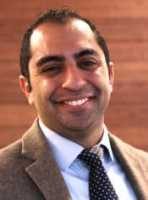18 May Re-Operations After Gastric Band Surgery Are Common and Costly
MedicalResearch.com Interview with:
Andrew Ibrahim, M.D., M.Sc
Institute for HealthCare Policy and Innovation
University of Michigan
MedicalResearch.com: What is the background for this study? What are the main findings?
Response: The laparoscopic gastric band was approved by the FDA in 2001 and widely adopted for the surgical treatment of morbid obesity. Reported rates of reoperation to revise or remove the device ranged from 4 to 60 percent in small scale studies, but no population estimates in the United States existed.
In a review of Medicare Claims data between 2006 and 2013, we observed that reoperation was common with 18% of patients requiring at least one reoperation. More over, we found that on average, patients who did need a reoperation often underwent an average of 3.8 additional procedures. Taken together, nearly half (47%) of the $470 million paid by Medicare for device related procedures was for reoperations.
MedicalResearch.com: What should readers take away from your report?
Response: Device related reoperation after gastric band surgery is common and costly which should be taken into account by patients, providers and payers when choosing an appropriate treatment for morbid obesity.
MedicalResearch.com: What recommendations do you have for future research as a result of this study?
Response: As we now are rapidly adopting the sleeve gastrectomy for treatment of morbid obesity, we will need to follow its long terms outcomes (including reoperations) and expenditures at a population level.
No disclosures
MedicalResearch.com: Thank you for your contribution to the MedicalResearch.com community.
Citation:
Andrew M. Ibrahim, Jyothi R. Thumma, Justin B. Dimick. Reoperation and Medicare Expenditures After Laparoscopic Gastric Band Surgery. JAMA Surgery, 2017; DOI: 10.1001/jamasurg.2017.1093
Note: Content is Not intended as medical advice. Please consult your health care provider regarding your specific medical condition and questions.
More Medical Research Interviews on MedicalResearch.com
[wysija_form id=”5″]
Last Updated on May 18, 2017 by Marie Benz MD FAAD

